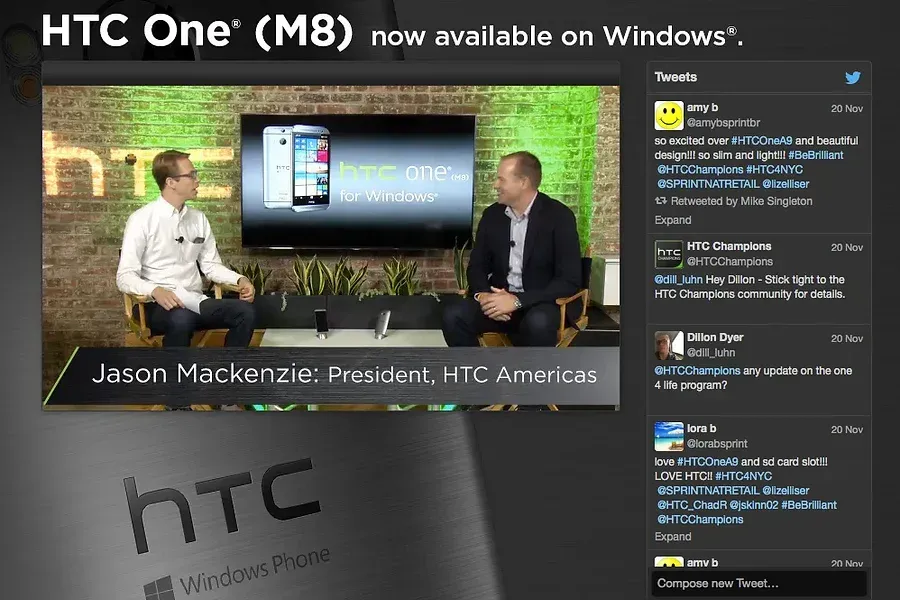Innovative Event Solutions: Virtual vs. Hybrid
New York City is known for its vibrant and dynamic event landscape. With its knack for innovation, NYC has always been at the forefront of adopting new event trends. In recent years, we've seen a significant shift towards digital solutions, specifically Virtual and Hybrid Events. But what exactly are these event types, and how do they compare? Let's explore the differences between Virtual Events and Hybrid Events, and why both are becoming increasingly important in today's event planning landscape.

What are Virtual Events?
Virtual events are conducted entirely online, allowing participants to join from anywhere in the world. They leverage technology to simulate the experience of an in-person event, offering interactive features such as live streaming, chat rooms, and virtual networking spaces. These events are cost-effective, accessible, and environmentally friendly, making them a popular choice for organizations looking to reach a global audience without the logistical challenges of a physical venue.
What are Hybrid Events?
Hybrid events combine in-person and virtual components, offering a flexible experience that caters to both on-site attendees and remote participants. This format provides the best of both worlds, allowing for face-to-face interactions while also reaching a wider audience online. Hybrid events can include live-streamed keynote sessions, virtual breakout rooms, and on-site networking opportunities, creating a comprehensive and engaging experience for all attendees.
Key Differences
- Accessibility and Reach: Virtual events eliminate geographical barriers, enabling unlimited participation from anywhere. Hybrid events, while still offering virtual access, also cater to those who prefer or require in-person interaction.
- Cost and Logistics: Virtual events tend to be more cost-effective as they reduce expenses related to venue rental, travel, and accommodation. Hybrid events, however, require investment in both physical and digital infrastructure.
- Engagement and Interaction: Virtual events leverage digital tools to facilitate interaction, but may lack the personal touch of face-to-face meetings. Hybrid events provide opportunities for both in-person and online engagement, offering a richer experience.
- Environmental Impact: Virtual events are more environmentally friendly, reducing the carbon footprint associated with travel and physical setups. Hybrid events, while greener than traditional events, still involve some level of physical logistics.
Choosing What Event Type is Right For Your Next NYC Event
When deciding between a virtual or hybrid event, it's crucial to consider your specific goals, target audience, and available resources. Here are some factors to help you choose the right event type:
- Event Objectives: Determine the primary goals of your event. If you're looking to maximize reach and accessibility, a virtual event might be the best option. Conversely, if fostering personal connections and in-person networking are key, you might lean towards a hybrid event.
- Audience Preferences: Understand your audience's needs and preferences. Some demographics may be more comfortable and engaged in a virtual setting, while others might value the experience of attending in person. Conduct surveys or gather feedback to gauge audience expectations.
- Budget Considerations: Evaluate your budgetary constraints. While virtual events generally require fewer financial resources, hybrid events necessitate investment in both digital and physical aspects. Allocate your resources efficiently to achieve the desired impact.
- Content Delivery: Assess how you plan to deliver your content. Virtual events allow for innovative digital formats and unlimited online access, which can be ideal for sessions that rely heavily on multimedia. Hybrid events, on the other hand, offer the flexibility of live and recorded sessions, catering to diverse learning styles.
- Health and Safety: In today's climate, health and safety considerations are paramount. Virtual events completely eliminate health risks associated with large gatherings. Hybrid events can also be designed with stringent safety protocols, ensuring a safe environment for on-site participants.
Ultimately, the choice between a virtual and hybrid event should align with your strategic objectives and audience needs, providing a seamless and impactful experience for all attendees.
Pros and Cons Comparison

Both virtual and hybrid events come with their unique advantages and disadvantages. Weighing these factors can help you decide the best approach for your next event.
Virtual Events
Pros:
- Broad Accessibility: Virtual events break down geographical barriers, allowing global participation from the comfort of one's home or office.
- Cost-Effective: Reduced expenses for venue rental, travel, accommodation, and on-site staff make virtual events a budget-friendly option.
- Environmentally Friendly: With no need for physical setups and traveling, virtual events significantly reduce the carbon footprint.
- Flexibility and Convenience: Attendees can join sessions at their convenience and often have access to recorded content for future reference.
Cons:
- Limited Networking Opportunities: The lack of face-to-face interaction can hinder personal connections and spontaneous networking.
- Technical Issues: Internet connectivity problems and platform glitches can disrupt the experience and limit engagement.
- Engagement Challenges: Maintaining attendee engagement through a screen can be more challenging than in-person interactions.
- Less Atmosphere: Virtual events may lack the atmosphere and excitement generated by the physical presence of participants.
Hybrid Events
Pros:
- Increased Reach: By combining in-person and virtual elements, hybrid events can attract a wider and more diverse audience.
- Enhanced Engagement: Attendees can choose their preferred mode of participation, leading to higher satisfaction and engagement.
- Networking Opportunities: On-site attendees benefit from face-to-face interactions, while virtual participants can still network through digital tools.
- Versatility: Hybrid events allow for a variety of content delivery methods, such as live sessions, recorded presentations, and interactive workshops.
Cons:
- Higher Costs: The need for both digital and physical infrastructures can result in higher expenses compared to purely virtual events.
- Complex Logistics: Planning and executing a hybrid event requires careful coordination of both online and on-site elements.
- Health and Safety Concerns: In-person components still carry health risks, necessitating stringent safety protocols.
- Technical Integration: Ensuring seamless integration between the virtual and physical aspects can be technically challenging.
Partner with Stratosphere for Your Next Event
For nearly 30 years, Stratosphere in NYC has been at the forefront of producing innovative, visually interactive events for clients across diverse industries. Based in the vibrant heart of NYC, our expertise spans virtual, hybrid, and in-person events, ensuring a seamless and impactful experience for all attendees. Whether you're aiming to reach a global audience through a virtual platform or seeking the dynamic engagement of a hybrid format, Stratosphere has the tools, knowledge, and creativity to bring your vision to life.
Ready to elevate your next event? Partner with Stratosphere and let's create an unforgettable experience together. Contact us today to learn more about how we can tailor our services to meet your specific needs and goals.
Frequently Asked Questions (FAQ)
What types of events does Stratosphere specialize in?
Stratosphere specializes in virtual events, hybrid events, and live in-person events across various industries. With nearly 30 years of experience, we have the expertise to produce innovative, visually interactive experiences tailored to your specific needs.
How can I determine the best event format for my goals?
Consider your event objectives, audience preferences, budget, content delivery methods, and health and safety concerns. Our team can help you assess these factors to choose the most effective format for your goals.
What are the primary advantages of virtual events?
Virtual events offer broad accessibility, cost-effectiveness, environmental benefits, and flexibility. They enable global participation and often include recorded content for future reference.
What challenges might I face with a virtual event?
Common challenges include limited networking opportunities, technical issues, engagement difficulties, and a potential lack of atmosphere. Our team can help mitigate these issues to ensure a smooth and engaging experience.
Why should I consider a hybrid event?
Hybrid events combine the strengths of virtual and in-person formats, providing increased reach, enhanced engagement, versatile content delivery, and both digital and face-to-face networking opportunities.
What are the potential drawbacks of hybrid events?
Hybrid events can incur higher costs due to the need for digital and physical infrastructures. They also pose complex logistical challenges and require careful technical integration to ensure a seamless experience.
How can I get started with Stratosphere for my next event?
To begin planning your event with Stratosphere, contact us through our website or give us a call. Our team will work closely with you to understand your goals and tailor our services to create an unforgettable experience.










